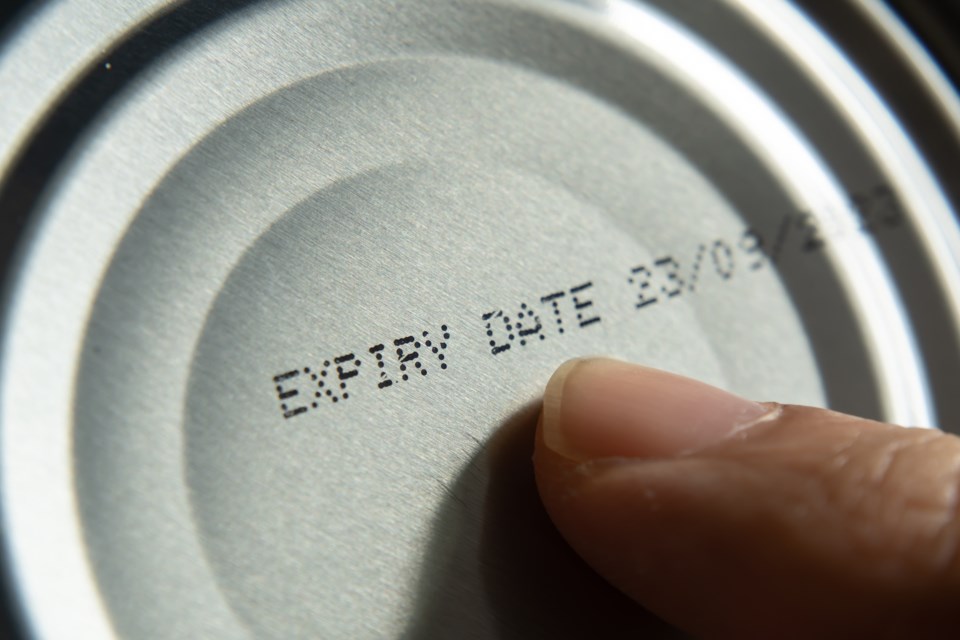It goes without saying, Vancouver consumers expect food products for sale at grocery stores to be edible. Shoppers don't expect to have to check their items' expiration dates before putting them in their carts and taking them home.
However, every now and then, products slip through the cracks, and a perishable item could end up on the shelf long past its "best before" date.
Shoppers take note: "Expiration dates and best before dates are not the same thing," explains a spokesperson from Canada's Food Inspection Agency (CFIA).
According to the CFIA, best-before dates are about food freshness, quality and how long they should last unopened, not about food safety. Whereas, an expiration date is the last day a food can safely be consumed.
"Canada’s approach to labelling pre-packaged foods, including best before dates, helps consumers make informed choices about the food they buy," the spokesperson tells V.I.A. in an emailed statement. "Consumers can find different kinds of date markings depending on the food product. The most common terms are "best-before," "packaged on," and “expiration date.”
What should you do if you find a food product past its best-before date?
The CFIA says that food can still be "good" and safe to eat even if it's not at its "best," so it is not actually illegal for grocery stores to sell products after their best-before dates.
However, the dates only apply to unopened foods that are stored properly. Once opened, the shelf life of these types of food products may change, and the CFIA says that consumers must use their judgment when deciding whether a food is still safe to eat.
If an unopened and properly stored food item is past its best-before date, it may lose some of its freshness or flavour, and the texture may be altered. In addition, it could have less nutritional value. For instance, vitamin C content may be lost over time.
If you accidentally purchase an item past its best-before and don't want to consume it or consume it and find it unsatisfactory, certain grocery stores will allow you to return it for a full refund.
One local encountered a jar of Western Family peanut butter at a Metro Vancouver grocery store that was marked two years past its best-before date. A spokesperson for Save-On Foods, the parent company of Western Family, told V.I.A. that "this was an isolated incident where this item was mistakenly put back on the shelf."
"In the event that a customer is not satisfied with any of our private brand products, including our Western Family products, we offer a 100 per cent full money-back guarantee," says the spokesperson. "Customers simply need to bring the unsatisfactory product back to the service desk at the store where the item was purchased."
What happens if the food is expired?
Once food items reach their expiration date, the CFIA advises that they should no longer be eaten because of changes in their nutrition or composition.
"Expiry dates are required on only a small number of specific foods," says the agency, "such as infant formula and meal replacements."
Foods with expiration dates should not be eaten because they have strict compositional and nutritional specifications which might not be met after the date, and for this reason, they cannot legally be sold.
If consumers see a product for sale that has past its expiry date, the CFIA says they can bring it to the attention of the retailer or report the concern if they think it does not meet regulatory requirements, and a CFIA inspector will then begin an investigation.
People can find more information on food date labelling on the CFIA website.
What happens to out-of-date or expired food?
Save-On-Foods says that the company diverts 100 per cent of its unsalable perishable food items from landfills either through donating it to food banks with B.C.-based charity partners such as FoodMesh, Loop Resources, and Food Banks BC or by donating expired food not fit for human consumption to family farms for animal feed and compost.





